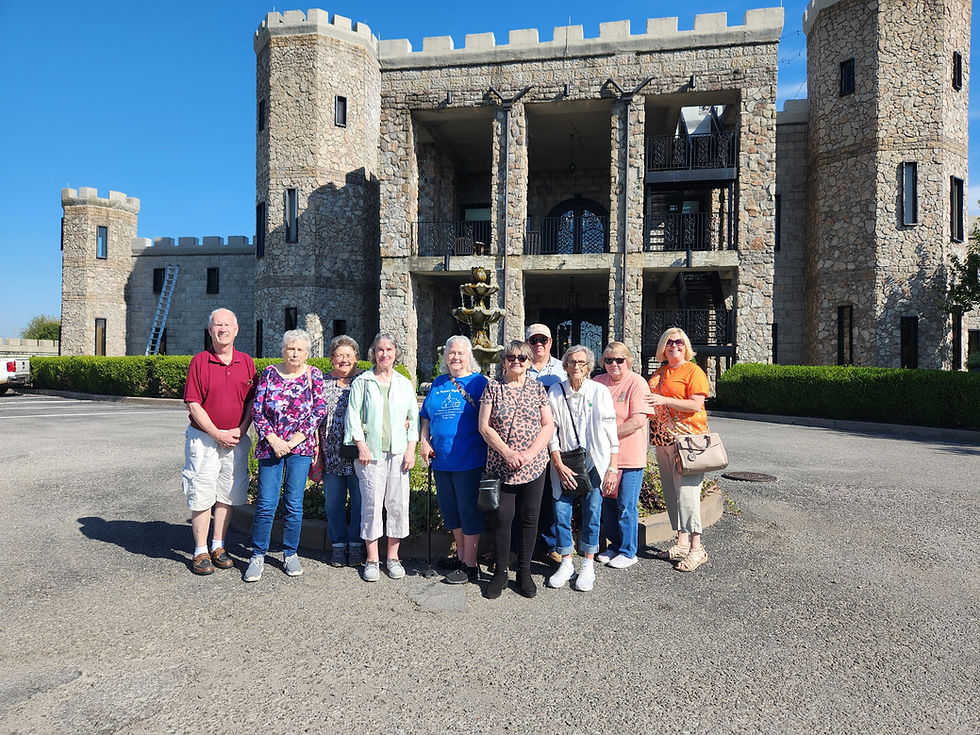Remembering Archie Clarence "AC" Sparrow: A True Hero
- editor7506
- Mar 13, 2025
- 4 min read
By Marlene Browning Wainscott
Archie Clarence “AC” Sparrow proudly served in the United States Army during World War II as part of the 30th Infantry in the European Theater of Operations (ETO) from October 1942 to February 1944. Born in Shelby County, Kentucky, AC’s father, Clarence, worked for Kraft Food Company in Lawrenceburg. When Kraft built a plant in Owen County, Clarence was sent to work there, and the family moved to Owenton.
AC was drafted into service on October 6, 1942, and reported for active duty on October 20 at Ft. Thomas, Kentucky. AC recalled, “I couldn’t wait to be 21, but shortly after I did, I was in the Army. I was lookin’ to be my own boss and got disappointed.”
Basic Training & Overseas Deployment
Like many young men of the era, AC went to basic training at Camp Blanding, Florida. There, he was reunited with a familiar face from Owen County—June Pryor. “He (June) was down there, but we weren’t in the same outfit. We would go back and forth to visit one another, like ‘real neighbors,’” Sparrow recalled.
After completing his training, AC and his unit boarded the SS Argentina for their journey overseas to England. They were stationed in Bognor Regis, a small town on the English Channel. “A civilian might be upstairs while I was downstairs or vice versa. We were on guard duty in the town. It was right on the English Channel, so it was an important area,” Sparrow explained.
From England, AC and his comrades were sent to France to join the Normandy Campaign. Though AC was assigned to the infantry, he was tasked with driving trucks to deliver ammunition to the front lines. This was a dangerous job, as German forces frequently targeted these trucks to disrupt supply lines. “I wasn’t always under fire, but a lot of the time, I was,” Sparrow said.
Challenges in Battle
AC’s job was physically demanding, often requiring him to drive through fields and rough terrain to reach the front lines. “Wherever the front lines were, that’s where I had to go,” he said. Sleeping during these times was a luxury. “Most of the time, we would sleep wherever we could find a spot to ‘hunker down.’ Sometimes I would just sleep in my truck,” he recalled.
In between battles, soldiers found comfort in writing letters home, though these were often censored for security reasons. “I wrote letters home, but they were censored out. They would cut the words out. You’d be reading along, and then all of a sudden, there was a blank space. I probably said something I shouldn’t have,” Sparrow reflected.
The Battle of Saint-Lô: A Turning Point
The pivotal day in AC’s service came on July 9, 1944—the day before his 23rd birthday. He was delivering ammunition to the front lines during the Battle of Saint-Lô, part of the larger Battle of the Hedgerows. Saint-Lô was an important crossroad that had been heavily bombarded by American forces. The city was largely destroyed, and heavy casualties were suffered on both sides.
“They (the soldiers) were very quiet,” Sparrow recalled. “They did not want to give their position away. Most of the men were in their foxholes.” German forces used “tree bursts,” artillery shells designed to explode in the treetops, raining shrapnel down like snow. “It was hard to get out from under it,” he said.
On that fateful day, AC was struck by shrapnel from a “tree burst,” injuring him in the left side of his face and both legs. “It was a heck of a way to celebrate my birthday,” he said. AC was taken to a field hospital, then transported to a hospital in England, and eventually sent back to the United States for recovery.
Life After the War
After returning home, AC resumed his life in Owenton. He opened Owenton Dry Cleaners, a business he ran for 30 years. “That’s what I did to pay for this house,” he chuckled. “All I ever wanted was to own my own business, and that’s what I did.”
As synthetic fabrics began to replace wool blends, the demand for dry cleaning diminished. AC adapted, transitioning Owenton Dry Cleaners into Owenton Laundromat, which became a long-time fixture in downtown Owenton.
In addition to being a businessman, AC served as the mayor of Owenton for 12 years, spanning three terms. In 1948, AC married Cordelia, a member of the Women Accepted for Volunteer Emergency Service (WAVES) during World War II. She later became a beloved teacher in the Owen County school system. The couple had two sons, Roger and Richard.
A Life Well-Lived
Reflecting on his time in the service, AC said, “I made many friends over there, including our commanding officers. We were all over there for one purpose… to fight.” He added, “I have had a very interesting life. It has been up and down, but I enjoyed every minute of it.”
AC served 9 months and 4 days overseas and was honorably discharged on November 19, 1945. He was awarded numerous medals and commendations for his service, including the Purple Heart Medal, the Victory Medal, the American Theater Ribbon, the European-African-Middle Eastern Ribbon with one Bronze Star, the Good Conduct Medal, the Driver Badge with Bar, the Expert Infantryman Badge, and the Combat Infantryman Badge.
Legacy of a Hero
AC Sparrow passed away at the age of 97 on April 6, 2019. His service to his country and his community will never be forgotten. We honor his memory and extend our gratitude to AC and all the brave men and women who have served to protect the freedoms we hold dear.
Owen County veterans are encouraged to share their stories with Sweet Owen Magazine’s Marlene Browning Wainscott. To share a story, email editor@sweetowenmag.com.






Comments